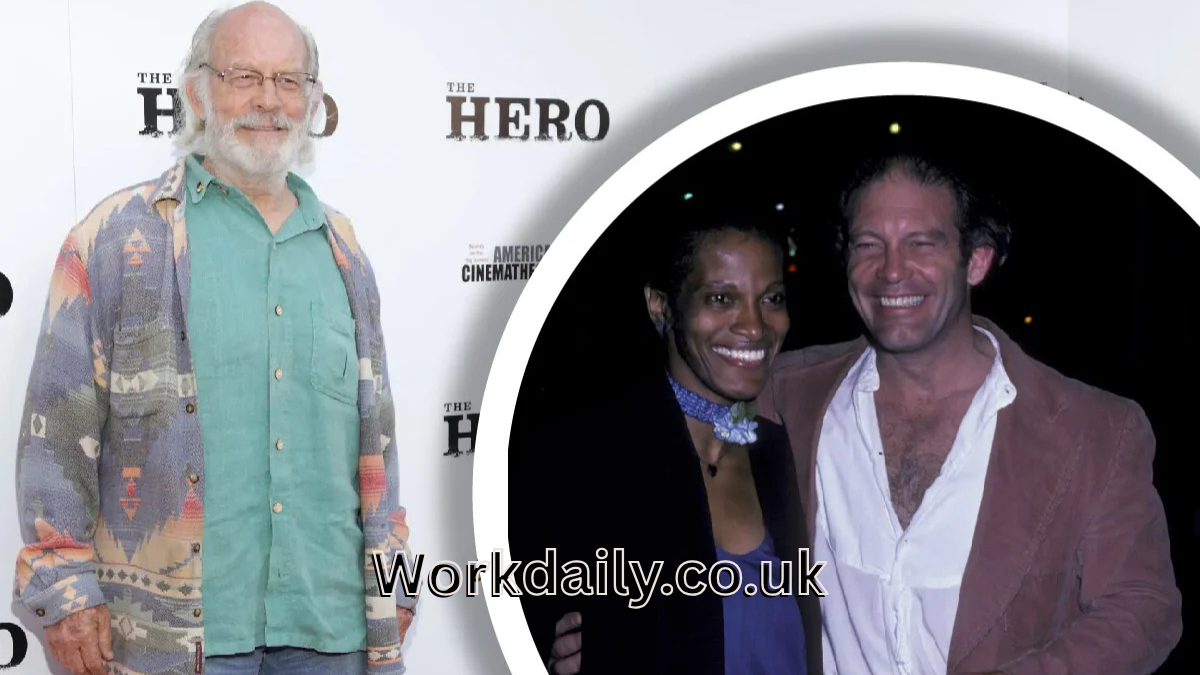While the world knows Bono, the charismatic frontman of U2, very few know the man who shaped him his father, John Abraham Hewson. Often overshadowed by his son’s global fame, John Hewson’s life was one of quiet dignity and understated influence. He was a postal worker in Dublin, a man of routine and reserved emotion, a stark contrast to the flamboyant rock star he raised. However, to truly understand Bono’s art, his activism, and the raw vulnerability in his lyrics, one must look to the complex and profound relationship he had with his father. This article will delve into the life and legacy of John Abraham Hewson, exploring the man himself, the strained yet ultimately reconciled bond he shared with his son, and the undeniable imprint he left on the music of U2.
John Abraham Hewson’s story is not just a footnote in a rock legend’s biography; it is a vital key to unlocking the emotional core of U2’s most powerful work. Born into a time and place of social and religious divides in Ireland, his worldview was shaped by pragmatism and a stiff upper lip sensibility that stood in direct opposition to his son’s expressive nature. This inherent difference created a tension that would define much of their relationship, a conflict of values between a working class father and his artistic son. This dynamic, however, was not one of simple opposition. It was a crucible in which Bono’s creativity was forged, pushing him to explore themes of identity, longing, and the search for connection. John’s life, lived largely out of the public eye, offers a poignant glimpse into the private world that fueled Bono’s public persona, providing the emotional landscape for some of the most iconic songs in rock history.
The Life and Legacy of John Abraham Hewson
John Abraham Hewson lived a life far from the glare of spotlights, rooted in the familiar rhythms of Dublin. He was a postal worker, a profession that embodied his dependable and methodical character. While his son would take to the global stage, John remained in the quiet suburbs of North Dublin, a man who found fulfillment in his daily routine and the simple pleasures of life. He was known for his stoicism and a dry, often cutting wittraits that Bono would later describe as a form of “tough love.” This emotional reserve, a common characteristic of his generation, often created a gulf between him and his more outwardly emotional son. However, it was within this quiet, undemonstrative framework that John imparted his most lasting lessons: the importance of hard work, humility, and facing the world with a sense of grounded realism. These values, while not always overtly celebrated by a young Bono, would eventually become the bedrock of his character and a quiet strength within his public persona.
His marriage to Iris Rankin and the subsequent birth of their two sons, Norman and Paul (Bono), was the centerpiece of his life. The John Abraham Hewson household was an interdenominational Christian home, with Iris being Protestant and John a Roman Catholic. This dual religious background provided a unique environment for the Hewson boys, exposing them to different spiritual traditions and fostering a broader perspective. The sudden and tragic death of Iris in 1974, when Bono was just 14, was a devastating blow that fractured the family. In the wake of this loss, John Abraham Hewson was left to raise two grieving teenagers on his own. The quiet man was now burdened with an emotional weight he was illequipped to handle, and the communication between father and son broke down. This period of shared grief and silent struggle would become a defining chapter in their relationship, setting the stage for years of misunderstanding and emotional distance.
The Complex Father Son Relationship
The relationship between John Abraham Hewson and his son was a profound and often turbulent journey. In Bono’s formative years, the generational and personality differences between them were stark. Bono, a burgeoning artist full of teenage angst and a need for emotional expression, clashed with his father’s stoic, working class sensibilities. The death of Bono’s mother, Iris, exacerbated this chasm. Without her as the emotional bridge, father and son retreated into their own worlds of grief. For Bono, this period was characterized by a feeling of emotional abandonment, a sentiment he would later channel into some of U2’s most raw and introspective songs. The feeling of being “out of control” and searching for a sense of belonging became a recurring theme in his lyrics, a direct reflection of his struggle to connect with the one remaining parent he had. This difficult period, however, was not without its moments of poignant connection, often expressed through the shared silence of their grief.
As Bono’s fame grew, the physical and emotional distance between them widened. The rock star life, with its constant touring and public demands, was a world John Abraham Hewson could not, and perhaps did not want to, comprehend. Yet, as Bono matured, a shift began to occur. He started to see his father not as a figure of emotional restraint, but as a man who had done his best in the face of immense loss. This newfound empathy paved the way for a gradual reconciliation in John’s later years. Bono began to see the quiet strength in his father’s stoicism and the deep love that was often hidden beneath a veneer of tough love banter. The relationship began to heal, characterized by a more open communication and a mutual respect that had been absent for so long. This late in life reconciliation brought immense peace to both men, and Bono’s final song for his father, “Sometimes You Can’t Make It on Your Own,” became a testament to this powerful journey of understanding and forgiveness.
The Enduring Influence on Bono’s Work
The life of John Abraham Hewson is inextricably linked to the music of U2. His presence, and the complex nature of his relationship with Bono, provided the creative fuel for some of the band’s most celebrated and emotionally resonant tracks. The theme of a son’s search for his father’s approval and understanding is woven into the very fabric of U2’s discography. In the wake of his mother’s death, songs like “I Will Follow” became a desperate plea for a sense of direction, a way to navigate a world that felt suddenly unmoored. The lyrical struggle to find his place and honor his family’s legacy is a direct echo of his personal journey. The raw energy and emotional rawness of their early work can be traced back to this period of shared grief and the chasm that separated father and son. This personal anguish was transformed into universal anthems of loss and hope, a hallmark of U2’s unique sound.
As Bono matured, so did his lyrical introspection. The reconciliation with his father, culminating in John Abraham Hewson final years, produced some of the band’s most tender and emotionally honest songs. “Sometimes You Can’t Make It on Your Own,” a poignant and heart wrenching tribute, captures the essence of their journey. It’s a song about a son’s gratitude and a father’s quiet strength, a lyrical acceptance of their differences and a celebration of their enduring bond. The line “You’re the reason I’m travelling, the reason I’m moving on” speaks volumes about the profound impact of John’s life on his son’s purpose. Beyond the explicit lyrical references, John Hewson’s influence can be seen in Bono’s broader worldview. His father’s working class background and grounded perspective provided a counterbalance to the excesses of fame, anchoring Bono’s activism in a genuine concern for humanity. John Abraham Hewson’s legacy is not just in the songs written about him, but in the very soul of the music he helped to inspire.
John Abraham Hewson’s Legacy
John Abraham Hewson’s legacy extends far beyond his connection to a rock star. While he lived a private life, his story offers a universal narrative about the silent strength of a parent and the complex, often challenging, journey of family. He was a man who, despite facing personal tragedy, carried on with dignity and a quiet resolve. His legacy is one of unwavering character, a steadfastness that provided a stable foundation for his son’s wild, creative spirit. For Bono, his father’s memory is a constant reminder of his roots of the city, the values, and the people who shaped him long before he became a global icon. He is remembered as a man of few words, but every word carried weight. His reserved nature was a source of frustration, but ultimately, it was also the source of Bono’s most profound lessons on resilience and self reliance.
In a world obsessed with celebrity and public persona, John Abraham Hewson’s life is a powerful counter narrative. He was a reminder that true influence often comes from the most unexpected places. He never sought fame or public recognition, yet his life story is now woven into the fabric of popular culture through his son’s music. His quiet life stands as a testament to the profound and often unacknowledged impact that parents have on their children. He may have been in the shadow of his son’s fame, but it was his character that helped Bono become the man he is today: a man who, despite his immense success, remains deeply connected to his roots and the values instilled in him by his father. John Abraham Hewson’s legacy is a poignant and powerful story of a quiet man whose love and life became a symphony of enduring influence.
Conclusion
John Abraham Hewson was much more than Bono’s father; he was the anchor and the emotional compass of his son’s life. His quiet strength, his stoicism, and the journey of reconciliation he shared with Bono provided the emotional depth and lyrical richness that defines U2’s music. From the raw angst of their early work to the poignant maturity of their later albums, John’s influence is ever present. He may not have sought the spotlight, but through his son’s art, his story has become a universal tale of love, loss, and the enduring power of family.




